- Bernard Preston homepage
- Our green home
- Make Your Home Resilient
Make your home resilient
Make your home resilient to the violent changes of weather that are coming to our world.
Most folk would agree that life is very different since the pandemic; we still are not sure whether it will be better or worse in the future. No question of it change had to come in one way or another. Now Mother Nature has struck back with a vengeance in response to the manner in which we have been treating her.
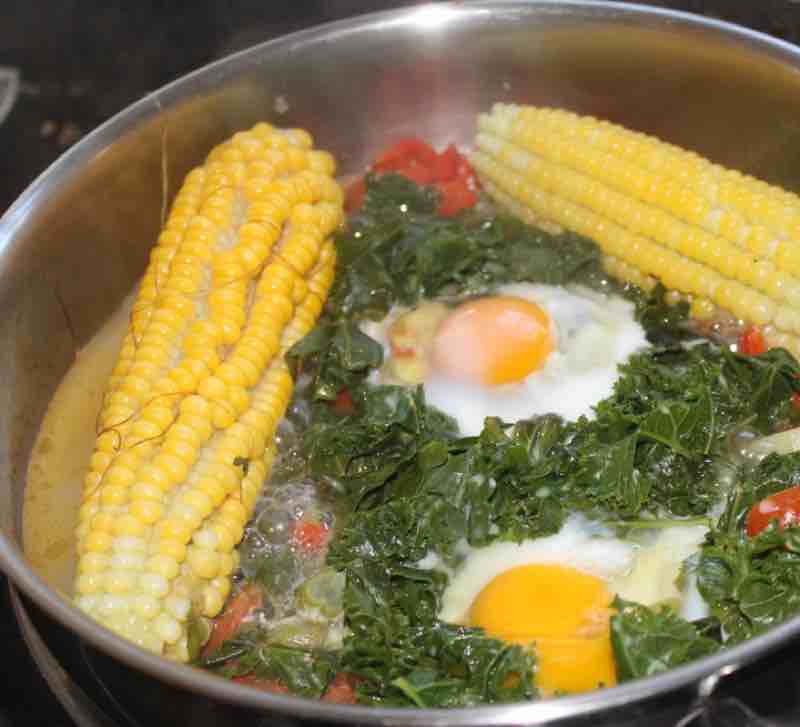
Whether politicians have the wherewithal to ring in the changes demanded to transform our world for the common good remains to be seen; most of us I think are doubtful. Unsurpassed greed, gross-incompetence and the destruction of the Earth are reshaping everything that was once familiar and loved. There are not too many statesmen out there.
Does that leave us depressed, wringing our hands in despair and wailing about our lot? Perhaps not, I would urge. But let us assume that everything is going to become more difficult; it is time to make our homes resilient in the face of the new-order and an uncertain future.
In the words of a local columnist we should all become our own service-providers; capture the sunshine, harvest the rain and grow as much food as we possibly can.
A world recession is likely and even another Great Depression is not out of the question. The war in Eastern Europe simply confirms that food is going to become scarcer and expensive; and fossil fuels a lot more costly. The stock markets are already on a roller-coaster.
Oddly in South Africa we have perhaps a small advantage; the writing has been on the wall for all to view and many of us I am sure have already been considering how to survive in a fallen world.
Certainly, though we knew it not, for the last ten-years we personally have been preparing ourselves for this unknown but given the luxury of hindsight foreseen future.
Some are calling it make your home "state-proof."
Will this year become the new BC/AD? Before and after the onslaught of the Coronavirus and how will it measure up to other pandemics like the Spanish-Flu and the Black Plague?
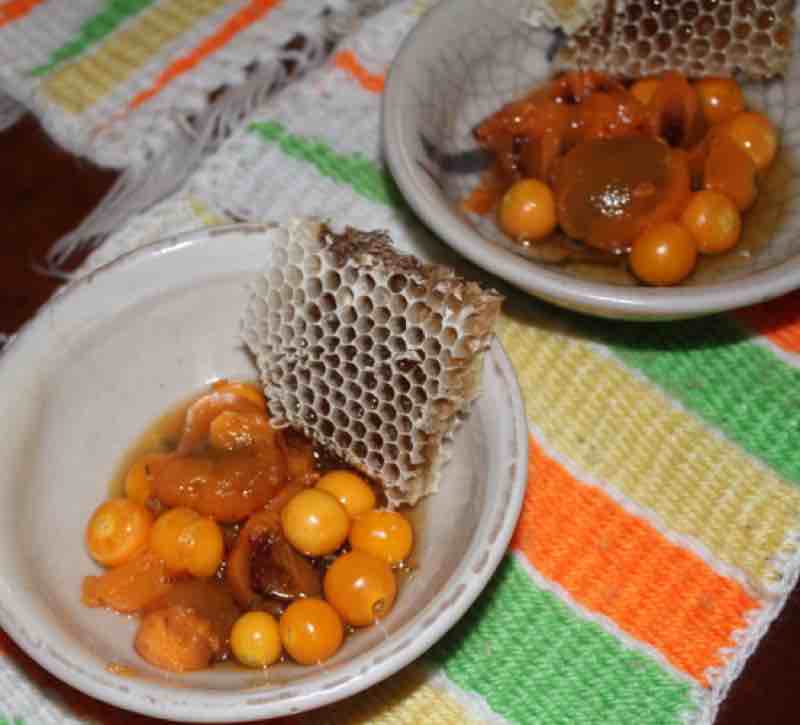
Two issues have become an anathema to my humble mind; highly-processed food and dirty water. Already nutritious meals and clean drink are very hard to come by; it's going to get worse methinks.
Not wishing to flagrantly blow my own trumpet, as I was collecting our breakfast from the garden, I reflected on how we have focused on making our home resilient to the coming change; we really do personally live now in a small bubble of plenty.
There is fruit in abundance; cherry guavas, gooseberries and granadillas. Exotic tree-tomatoes for months and honeycomb on any chosen day are a given. The cream comes courtesy of a farmers' market. A mealie each, plentiful greens and after stooping into the hen house, a fresh Eggs Hilton breakfast is assured.
After the rain last night, the underground reservoir is again full with enough pristine water to carry us through the winter. It took eight men two weeks to construct; it was cheaper than plastic tanks and has an indefinite lifespan.
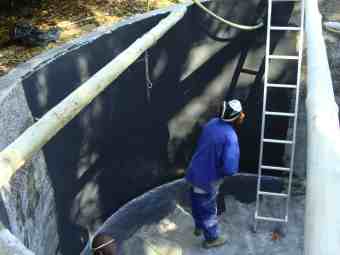
Make sure you get the right information concerning the plaster for your reservoir or you will have to fibre-glass it[2]; that will be expensive. What is your rainwater innovation in the face of an increasingly thirsty planet?
Will you too make your home resilient?
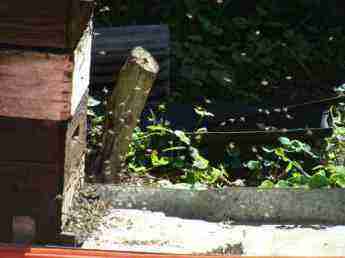
The bees are very busy at this time and the first harvest was beyond expectation. A bucket of honey beer made from the gleanings is gurgling reassuringly too; who cares if the bottle-store is closed? It can remain shut for ever as far as I am concerned.
"Resilient people have a stoic acceptance of tough situations, creating meaning despite the current circumstances; and an ability to improvise."
- Diane Coutu
Unable to commit to formal work, the telephone was strangely quiet during the pandemic; the mornings was spent making butternut-soup and roasting pumpkin for example.
Four teenage cockerels have become arrogant but I am not alas yet able to harden my heart sufficiently to cut their throats without the help of my Zulu friend; dinner will have to be soup, homemade bread and avocado until he pays a visit after lock-down.
The flexitarian way of life means eating meat only occasionally in any case. Would you describe such as dining like a pauper?
"If you have an avocado and a slice of wholemeal bread, then you can have a feast."
- Joy Caldwell
After an afternoon siesta, rudely awakened by the good wife learning a new programme so that she can teach mathematics remotely over the internet, time was spent preparing a piece of ground for three rows of peas and yet another for broad beans.
We practise crop-rotation; there were mealies growing there the previous summer. Legumes can capture nitrogen from the air, fertilizing the soil[3].
Peas and broad beans share the same rhizobia that attach to their roots and capture nitrogen from the air.
Mother Hen and her eight chicks were allowed in initially to scratch for cutworms but then had to be banished as I dropped the pea and bean seeds into the drills. Make your home resilient. Actually it's quite fun and fresh food is without equal, says the epicure; or is he a food snob?[4]
“I resolved I would become self-sufficient. I would work hard. I would study. I would pull myself up by my bootstraps.
Yes, even though I had still to acquire the boots.”
- Sindiwe Magona
Make your home resilient
Make your home resilient because each Earth Hour reminds us that catastrophic weather conditions are coming if we do not reduce greenhouse-gases; in fact they have already arrived.
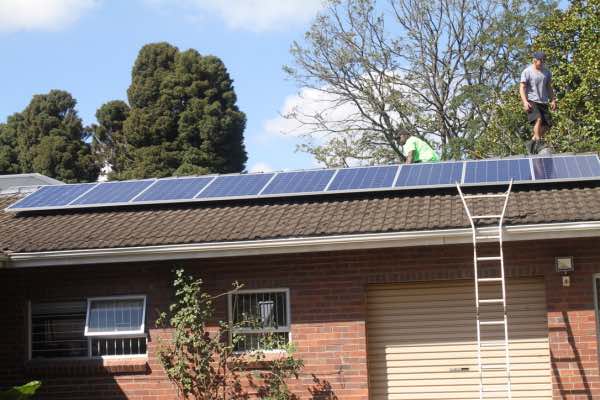
The solar panels have been humming; there was more than enough of the sun's power for hot water, the oven and making sure E-car was fully charged. It is such a pleasure no longer having to buy petrol.
Unwittingly for ten years we have been preparing for the tumultuous changes that the pandemic has rung in. One step at a time, little did we know it we have made ourselves resilient to the new and very different world that is awaiting us all.
It's destined to get even worse with a terrible invasion of a neighbouring country by one of the superpowers. Taiwan could be next. Food prices will soar; you could turn your place into an eco-friendly home too. A life without medication also becomes a real possibility.
"Let thy food be thy medicine, and medicine be thy food."
Hippocrates (460 - 370 BC)
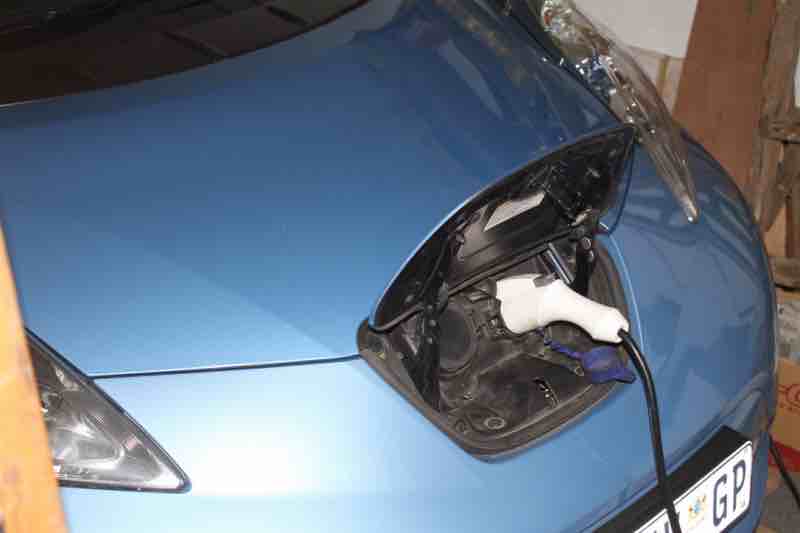
When browsing use right click and "Open Link in New Tab" or you may get a bad gateway signal.
What is home resilience?
Change is coming; political, climatic or even violent as is happening in Ukraine. We can prepare ourselves by using building techniques that make our homes resilient to these nightmares. Double-glazing will keep the street noise out; water reservoirs to harvest the rain.
Hurricanes, heat waves and even theft of cable can collapse the grid; we can harvest the sun.
Make your home resilient so that you will be able to cope with the new world; it could be very different.
Newsletter
Our newsletter is entitled "create a cyan zone" at your home, preserving both yourself and Mother Earth for future generations; and the family too, of course. We promise not to spam you with daily emails promoting various products. You may get an occasional nudge to buy one of my books.
Here are the back issues.
- Lifestyle and ideal body weight
- What are ultra-processed foods?
- Investing in long-term health
- Diseases from plastic exposure
- Intensive lifestyle management for obesity has limited value
- A world largely devoid of Parkinson's Disease
- The impact of friendly bacteria in the tum on the prevention of cancer
- There's a hole in the bucket
- Everyone is talking about weight loss drugs
- Pull the sweet tooth
- If you suffer from heartburn plant a susu
- Refined maize meal and stunting
- Should agriculture and industry get priority for water and electricity?
- Nature is calling
- Mill your own flour
- Bake your own sourdough bread
- Microplastics from our water
- Alternative types of water storage
- Wear your clothes out
- Comfort foods
- Create a bee-friendly environment
- Go to bed slightly hungry
- Keep bees
- Blue zone folk are religious
- Reduce plastic waste
- Family is important
- What can go in compost?
- Grow broad beans for longevity
- Harvest and store sunshine
- Blue zone exercise
- Harvest and store your rainwater
- Create a cyan zone at your home
Did you find this page interesting? How about forwarding it to a friendly book or food junkie? Better still, a social media tick would help.
- Bernard Preston homepage
- Our green home
- Make Your Home Resilient
Address:
56 Groenekloof Rd,
Hilton, KZN
South Africa
Website:
https://www.bernard-preston.com